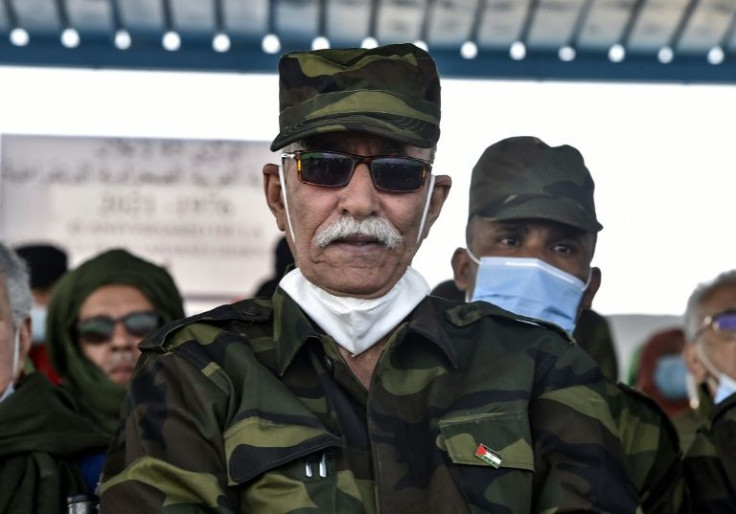Polisario Chief Announces 'Escalation' In W.Sahara
The head of the Western Sahara independence movement, the Polisario Front, said on Friday it had decided to step up military operations, a year after a ceasefire with Morocco collapsed.
"The Sahrawi people has made up its mind and taken the sovereign decision to escalate its just war of liberation with all legitimate means, first and foremost the armed struggle," until it takes full control of the territory, Brahim Ghali, 72, told Polisario leaders, according to the Sahrawi press agency SPS.
Tensions over the region have heightened after Algeria, the Polisario's main backer, in early November accused its regional rival Morocco of killing three Algerians on a highway through the desert territory.
Algeria in August had already cut diplomatic relations with its neighbour, citing various "hostile actions", allegations Morocco denies.
Morocco controls most of Western Sahara, which it views as its own territory. Rabat fought a 15-year war with the Polisario after Spain withdrew from its former colony in 1975.
Ghali's treatment in Spain from April to June when he was critically ill with Covid-19 also upset Morocco which accused Madrid of letting him in with a false passport. Spanish officials at the time said his entry was legal.

The 1991 United Nations-monitored ceasefire left Rabat in charge of about four-fifths of the territory including most of Western Sahara's vast phosphate reserves and access to rich Atlantic fishing waters.
That ceasefire deal had provided for a referendum on self-determination, but Morocco has since rejected any vote that includes independence as an option, offering only limited autonomy.
The Polisario last November declared the 1991 ceasefire null and void, after Moroccan forces entered no man's land to break a blockade by Sahrawi activists of a highway linking Moroccan-controlled territory with Mauritania.
Shortly after, the US administration of then-president Donald Trump recognised Morocco's sovereignty over the territory in a quid pro quo for Rabat's normalising ties with Israel.
Algeria said Washington's decision had "no legal effect."
Last month a UN Security Council resolution called for "the parties" in the Western Sahara dispute to resume negotiations "without preconditions".
© Copyright AFP {{Year}}. All rights reserved.





















